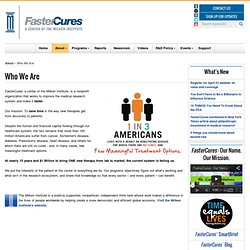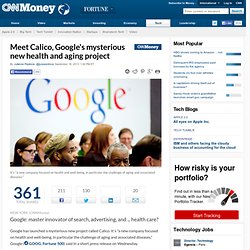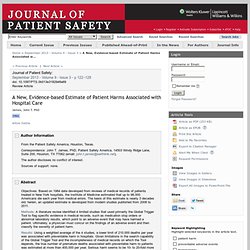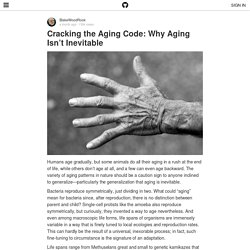

Faster Cures. Nanomotors are controlled, for the first time, inside living cells. UNIVERSITY PARK, Pa. -- For the first time anywhere, a team of chemists and engineers at Penn State has placed tiny synthetic motors inside live human cells, propelled them with ultrasonic waves and steered them magnetically.

It's not exactly "Fantastic Voyage," but it's close. The nanomotors, which are rocket-shaped metal particles, move around inside the cells, spinning and battering against the cell membrane. "As these nanomotors move around and bump into structures inside the cells, the live cells show internal mechanical responses that no one has seen before," said Tom Mallouk, Evan Pugh Professor of Materials Chemistry and Physics.
"This research is a vivid demonstration that it may be possible to use synthetic nanomotors to study cell biology in new ways. We might be able to use nanomotors to treat cancer and other diseases by mechanically manipulating cells from the inside. "Autonomous motion might help nanomotors selectively destroy the cells that engulf them," Mallouk said. Human longevity has not increased since the Paleolithic. Humans evolved early to live until at least 70.
Collecting & Sharing Data. Better Diagnostics. Cheaper Cures. Faster Cures Group. FasterCures, a center of the Milken Institute, is a nonprofit organization that works to improve the medical research system and make it faster.

Our mission: To save time in the way new therapies get from discovery to patients. Despite the human and financial capital flowing through our healthcare system, the fact remains that more than 100 million Americans suffer from cancer, Alzheimer's disease, diabetes, Parkinson's disease, heart disease, and others for which there are still no cures - and, in many cases, few meaningful treatment options.
At nearly 15 years and $1 Billion to bring ONE new therapy from lab to market, the current system is failing us. We put the interests of the patient at the center of everything we do. Meet Calico, Google's mysterious new health and aging project - Sep. 18, 2013. It's "a new company focused on health and well-being, in particular the challenge of aging and associated diseases.

" NEW YORK (CNNMoney) Google has launched a mysterious new project called Calico. It's "a new company focused on health and well-being, in particular the challenge of aging and associated diseases," Google (GOOG, Fortune 500) said in a short press release on Wednesday. What will Calico do, exactly? That's unclear; Google didn't provide many more details on the new venture. In a rare move, Apple (AAPL, Fortune 500) CEO Tim Cook weighed in on his competitor's venture. With so few details available at launch, Google's long-term plans in the health sector remain unclear. "OK ... so you're probably thinking wow! Related story: Walgreens shifts workers to private health exchanges He's made similar statements about side projects like Google Glass, but the Calico health-care venture is unique in that it will be a company separate from Google. Get off India’s back. Washington: A Geneva-based non-profit doctors association has criticised the US and its pharma lobby for exerting pressure on India over its patent laws, saying such actions undermine the global trading system.

"Every country has the right to take steps to increase access to medicines and implement a patent system in line with its public health needs. We strongly object to the pressure exerted by the US on developing countries, including India, for using legal flexibilities to protect public health," Rohit Malpani of the Doctors Without Borders told the US International Trade Commission yesterday. USITC has conducted a hearing this week in connection with its investigation "Trade, Investment, and Industrial Policies in India: Effects on the US Economy". Reuters "India's measures are fully compliant with global trade rules and with the laws of India.
400,000 Deaths a year from Hospital Errors. “All men make mistakes, but a good man yields when he knows his course is wrong, and repairs the evil.

The only crime is pride.”— Sophocles, Antigone” Medical care in the United States is technically complex at the individual provider level, at the system level, and at the national level. At the national level, our country is distinguished for its patchwork of medical care subsystems that can require patients to bounce around in a complex maze of providers as they seek effective and affordable care. Cracking the Aging Code: Why Aging Isn’t Inevitable. Humans age gradually, but some animals do all their aging in a rush at the end of life, while others don’t age at all, and a few can even age backward.

The variety of aging patterns in nature should be a caution sign to anyone inclined to generalize—particularly the generalization that aging is inevitable. Bacteria reproduce symmetrically, just dividing in two. What could “aging” mean for bacteria since, after reproduction, there is no distinction between parent and child? Single-cell protists like the amoeba also reproduce symmetrically, but curiously, they invented a way to age nevertheless. And even among macroscopic life forms, life spans of organisms are immensely variable in a way that is finely tuned to local ecologies and reproduction rates. Life spans range from Methuselans great and small to genetic kamikazes that die of a spring afternoon. And it is not only the length of life but the pattern of deterioration within that time that varies widely. It gets worse.